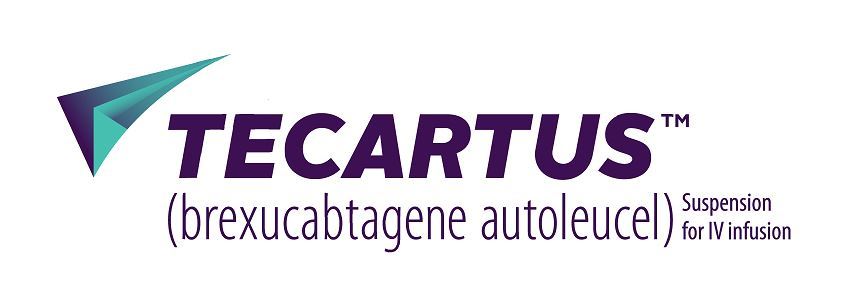Julayi 25, i-2021: I-Kite, Inkampani yaseGileyadi (Nasdaq: GILD), namuhla imemezele ukuthi i-FDA inikeze i-Tecartus TM (brexucabtagene autoleucel, ngaphambili eyayiyi-KTE-X19), eyokuqala negunyazwe kuphela i-chimeric antigen receptor CAR T-cell therapy for the treatment of adult patients with relapsed or refractory mantle cell lymphoma, accelerated approval (MCL). The FDA granted priority review and breakthrough therapy designation to this one-time therapy, which was based on the results of ZUMA-2, a single-arm, open-label study in which 87 percent of patients responded to a single infusion of Tecartus, with 62 percent achieving a complete response (CR). 18% of patients who were evaluated for safety had i-cytokine release syndrome (CRS) of Grade 3 or higher, and 37% had neurologic toxicities of Grade 3 or higher.
“Despite promising advances, there are still significant gaps in treatment for MCL patients who progress after initial therapy,” said Michael Wang, MD, ZUMA-2 Lead Investigator and Professor, Department of Lymphoma and Myeloma, Division of Cancer Medicine, University of Texas MD Anderson Cancer Center. “Many patients have high-risk disease, which means they are more likely to progress despite treatment. “Tecartus is the first cell therapy available to people with relapsed or refractory MCL. It has an impressive response rate of nearly 90% and early clinical evidence suggests that remissions may last through later lines of therapy. This makes it an important choice for these patients.”
“Siyaziqhenya ngokwethula i-cell therapy yethu yesibili ngoba uKite uzibophezele ekuletheni isithembiso Ukwelashwa kwe-CAR T to patients with haematological cancers,” said Christi Shaw, Kite’s Chief Executive Officer. “I would like to express my gratitude to the patient study participants, caregivers, clinical researchers, regulators, and dedicated Kite colleagues who contributed to this approval, and we look forward to working with the i-lymphoma community to bring this potentially transformative therapy to patients with relapsed or refractory MCL.”
Tecartus’ product label includes a boxed warning about the risks of CRS and neurologic toxicities. The FDA has approved a Risk Evaluation and Mitigation Strategy (REMS) for Tecartus, which has been combined with the REMS for Yescarta® (axicabtagene ciloleucel). The REMS programme will inform and educate healthcare professionals about the risks associated with Tecartus therapy, and training and certification in the REMS programme will be a requirement for centres offering Tecartus therapy to receive final authorization.
MCL is a rare type of i-non-Hodgkin lymphoma (NHL) that develops from cells in the lymph node’s “mantle zone” and primarily affects men over the age of 60. Following a relapse, MCL is extremely aggressive, and many patients progress after treatment.
The Lymphoma Research Foundation’s Chief Executive Officer, Meghan Gutierrez, said, “This approval marks the first CAR T cell therapy approved for mantle cell lymphoma patients and represents a new frontier in the treatment of this disease.” “Researchers have made significant progress in our understanding of this disease over the last decade, and we’ve seen an increase in patient clinical trials, which we hope will continue to improve treatment strategies and options for people with mantle cell lymphoma. Today’s news builds on that progress and gives mantle cell patients and their families reason to be hopeful.”
Kite’s commercial manufacturing facility in El Segundo, California, will produce Tecartus. Kite achieved a 96 percent manufacturing success rate in the ZUMA-2 trial, with a median manufacturing turnaround time of 15 days from leukapheresis to product delivery. Patients with advanced disease, who are severely ill and at risk of rapid progression, require manufacturing speed in particular.
I-Kite Konnect®, inkundla yobuchwepheshe edidiyelwe ehlinzeka ngolwazi nosizo kuyo yonke inqubo yokwelapha ukuze i-Kite ithengiselwe. CAR T zokwelapha, including courier tracking for shipments and manufacturing status updates, is available to patients whose healthcare professionals have prescribed Tecartus therapy. Kite Konnect is a support system for patients who are receiving Yescarta or Tecartus, as well as information for the healthcare teams who are supporting them.
I-KTE-X19 okwamanje iyahlolwa e-European Union, futhi i-European Medicines Agency iyinikeze igama elithi Priority Medicines (PRIME) le-MCL ebuyelwe emuva noma ehlanekezelwe.
Imiphumela yesilingo seTecartus
Ukugunyazwa kwe-Tecartus kusekelwe emiphumeleni yocwaningo olubalulekile lwe-ZUMA-2 oluqhubekayo, okuwucwaningo lwengalo eyodwa, olunelebula evulekile. Iziguli ezikhulile ezingama-74 ezine-MCL ebuyele emuva noma ephikisayo ezazike zathola i-anthracycline- noma i-bendamustine-containing chemotherapy, ukwelashwa kwe-anti-CD20 antibody, noma i-Bruton tyrosine kinase inhibitor zabhaliswa esivivinyweni (ibrutinib noma i-acalabrutinib). Isiphetho esiyinhloko kwakuyizinga lokuphendula okuhlosiwe (ORR), elichazwe njengezinga elihlanganisiwe le-CR kanye nezimpendulo eziyingxenye njengoba kwahlulelwa iKomidi Elizimele Lokubuyekeza I-Radiologic ngokusho kwe-Lugano Classification (2014). (IRRC).
Ocwaningweni, amaphesenti angama-87 eziguli (n=60 angahlolela ukuhlaziya ukusebenza kahle) asabela ekufakweni okukodwa kwe-Tecartus, ngamaphesenti angama-62 athola impendulo ephelele. Ukulandelela kwaba okungenani izinyanga eziyisithupha ngemva kokuphendula kwesifo okuhlosiwe kuzo zonke iziguli. Isikhathi sokusabela esimaphakathi asikanqunywa.
In the experiment, 18% of patients (n=82 evaluable for safety) had Grade 3 or higher CRS, while 37% of patients had neurologic problems. Anemia, neutropenia, thrombocytopenia, hypotension, hypophosphatemia, encephalopathy, leukopenia, hypoxia, pyrexia, hyponatremia, hypertension, infection-pathogen unclear, pneumonia, hypocalcemia, and lymphopenia were the most prevalent Grade 3 or higher adverse effects (10%). With a Risk Evaluation and Mitigation Strategy, the FDA approved Tecartus (REMS). The Yescarta (axicabtagene ciloleucel) and Tecartus (brexucabtagene autoleucel) REMS Program has been integrated with the Tecartus REMS and is now known as the “Yescarta (axicabtagene ciloleucel) and Tecartus (brexucabtagene autoleucel) REMS Program”
Mayelana noTecartus

Tecartus is an autologous, anti-CD19 CAR T cell therapy. Tecartus uses the XLP™ manufacturing process that includes T cell enrichment, a necessary step in certain B-cell malignancies in which circulating lymphoblasts are a common feature. In addition to MCL, Tecartus is also currently in Phase 1/2 trials in acute lymphoblastic leukemia (ALL) and i-lymphocytic leukemia engapheli (CLL). The use of Tecartus in ALL and CLL is investigational, and its safety and efficacy have not been established in these cancer types.
Tecartus Inkomba
I-Tecartus iyi-CD19 eqondiswe kofuzo ye-autologous T cell immunotherapy ekhonjiswe ukwelashwa kweziguli ezikhulile ezine-refractory mantle cell lymphoma (MCL) ebuyele emuva noma ephikisayo.
Lesi sibonakaliso sigunyazwe ngaphansi kokugunyazwa okusheshisiwe okusekelwe esilinganisweni sezimpendulo eziphelele nokuqina kwempendulo. Ukugunyazwa okuqhubekayo kwalesi sibonakaliso kungase kuncike ekuqinisekisweni nasekuchazweni kwenzuzo yomtholampilo esivivinyweni esiqinisekisayo.

